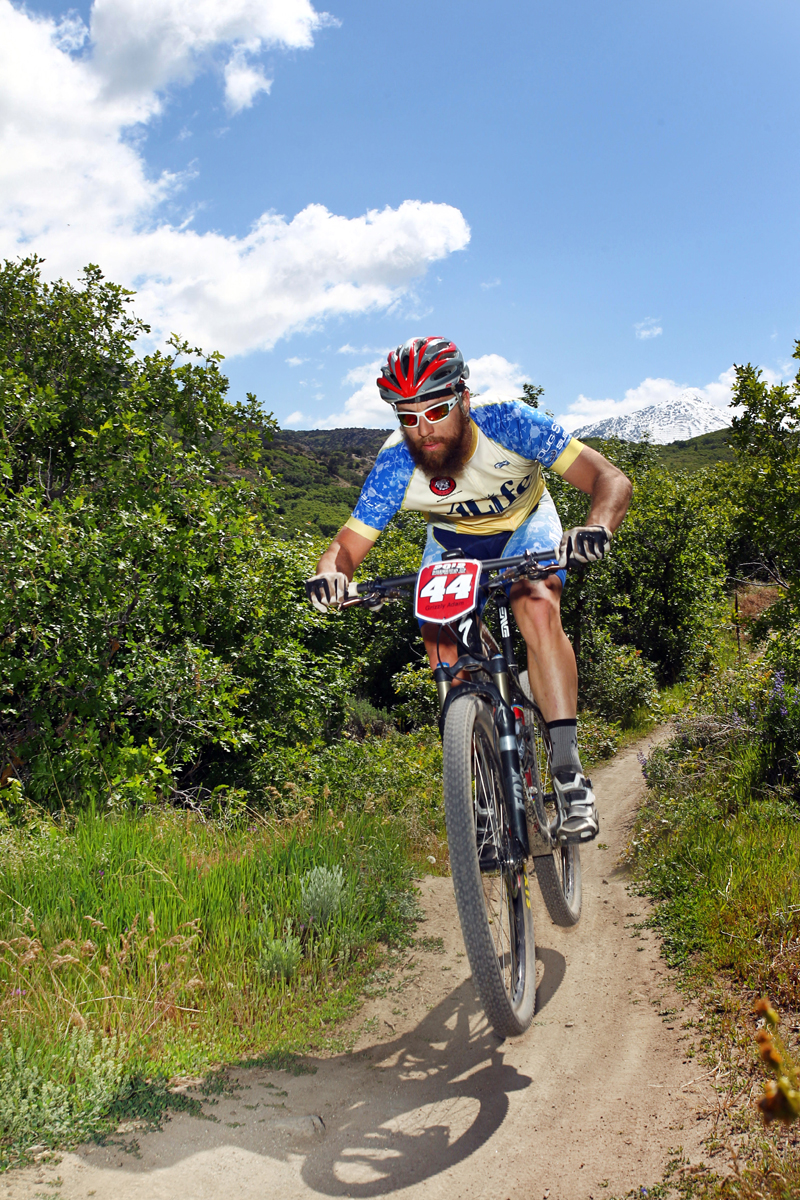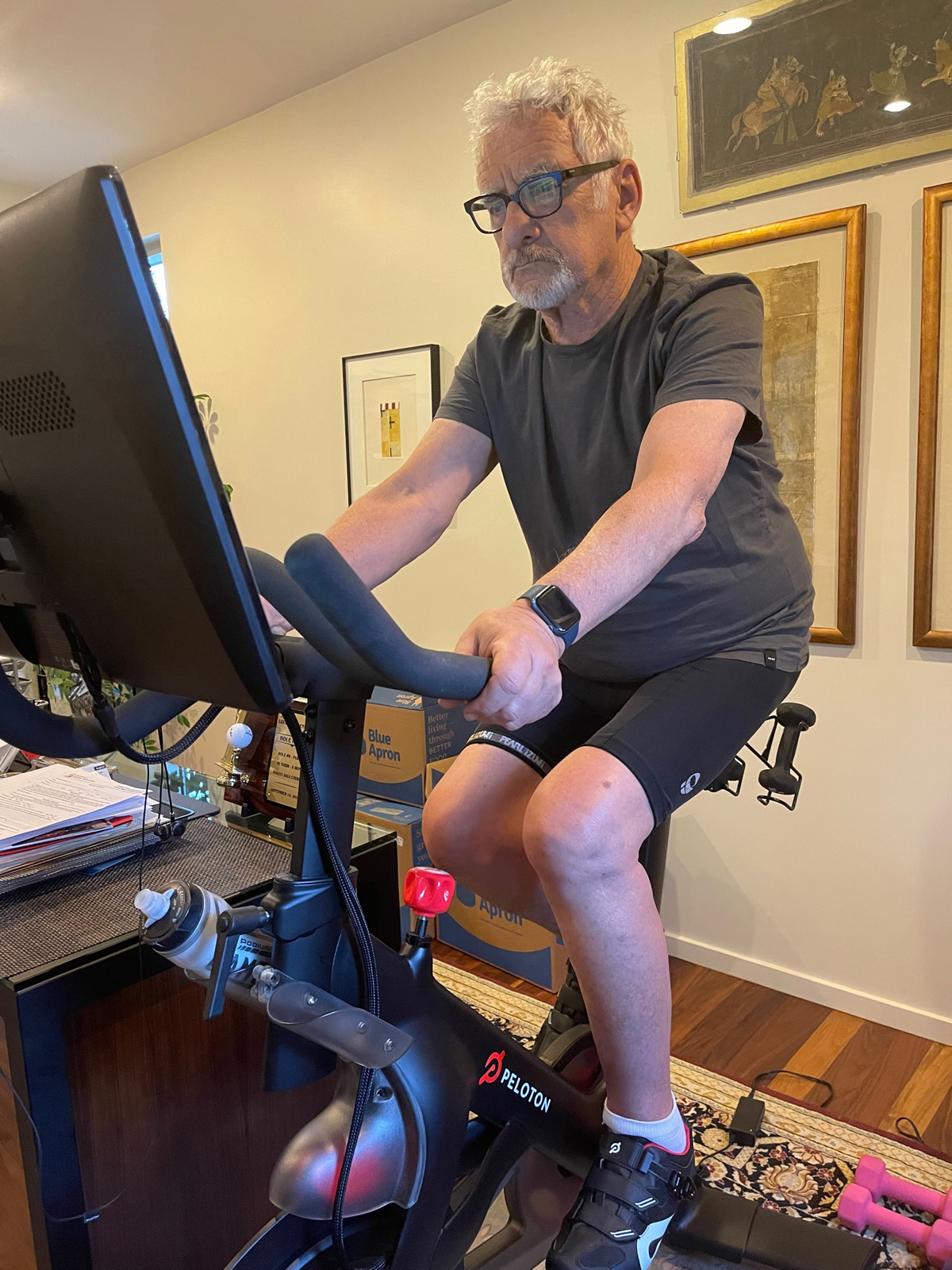Why do you ride a bike?
Fitness? Competition? Exploration?
The term “joy riding” is often used to describe riding for the sake of riding—that is, without training goals, structure, or plans. It implies that riding a bicycle is inherently pleasurable and that the act of pedaling is itself enjoyable.
Well, is it?
Of course it is.

But I think “joy riding” is a misnomer. A training ride is, at its foundation, no different than a joy ride. The physics involved in both rides are identical. Pedaling is pedaling. The variations that do occur come only in the intensity, or more abstractly, the intent of the ride. But neither is more enjoyable than the other. There is no such thing as misery riding. Of course, elevating the intensity of a ride certainly increases the physical pain involved. But pain is not misery. Indeed, I would argue that misery is, instead, the lack of pain. Without pain there is no joy. One must precede the other. Maybe even more absurdly, pain is joy—at least it is while racing a bike.
This year I’ve lined up at the start line of several mountain bike races, and every time I have felt the same brooding dread deep in my gut. “Why am I doing this?” Bike racing hurts. It exposes us for who we really are. There is no place to hide. The naked truth is revealed for all to see, and to mock. Our weaknesses are isolated and uncovered, and our most private pain is made unflatteringly public. “Why am I doing this?”
I spent Memorial Day racing my bike. I could have relaxed at home. I could have picnicked in the mountains. I could have slept in. But I didn’t do any of those things. Instead, I woke up early and raced my mountain bike at the Intermountain Cup Stan Crane Memorial in Draper, Utah. The difficult course—11 miles and 1,500 vertical per lap—was filled with tight switchbacks, off-camber traverses, and long (very long!) climbs. I suffered. The engine, which had been coming along nicely this spring, never got going like I hoped it would. And so, I plodded along, not very fast, but not too slowly either. Two laps into my three-lap odyssey, I was again asking myself the eternal question: “Why am I doing this?”
Race or not, why do any of us ride our bikes? There are other hobbies that are less expensive, safer, and more socially acceptable. Like watching TV. Or shopping. But we choose to ride a bike. Sometimes we ride a bike over mountain passes, across deserts, and through deep, wooded forests. And other times, we simply ride to school, to work, or around the block. We ride fast. We ride slowly. But we ride. Along the way, our bodies become leaner, lighter, more efficient. We sleep better at night, we eat healthier foods, and we learn to appreciate the nuances of pedaling a bicycle. The stresses of life melt away into forgotten unimportance over the miles and miles of riding.
As cyclists, we have learned that life is meant to be self-powered, spent with friends and family, and energetically cooperative. We understand that headwinds, while vexing, can be mitigated. We have realized that team time-trials and solo break-aways are not contradictory, or mutually exclusive. Indeed, they are symbiotic. That is, individual and cooperative accomplishments cannot exist without each other. Behind the solo victory is a team. And inside the team are individuals.
When I finally finished my race in Draper, I was exhausted. My face was coated in dirt and sweat. My legs ached dully. My back hurt. My hands were throbbing. My feet burned. I was mildly disappointed with my result. I had, as usual, wanted to go faster.
The next day, I brooded over my result. “How long am I going to bother with this eternal treadmill?” I wondered. “I won’t win many, or any, races. But, maybe I can be better. ” But how much better? And to what end?
To what end? It’s a question that I ask all too often. Indeed, it’s a poisonous question. It’s a question that breeds indifference, apathy, and destruction. To what end? Who cares! The results of anything we do—bike race, or otherwise—can’t be controlled or pre-determined. The variables are infinite, and the metrics of success, indefinite.
Worrying about results, and being disappointed with them, is futile and pointless. I raced hard. I did my best. I am encouraged and optimistic at the incremental improvements that are slowly, but unmistakably, manifesting themselves. And best of all, I had fun—a lot of fun. Racing bikes is supposed to be enjoyable. Why that is, or how that is, I will never understand. But pushing our bodies and minds beyond the limits of reason is delightful.
And, if there is an end, then that is it. Fun. Joy. Bliss.
After the race, the (self-inflicted) pain and the misery of the day faded quickly. Racers were gathered together in clumps of bright lycra, handing out high-fives and claps on the back, handshakes, and half-hugs. These were all handed out evenly and liberally, regardless of finishing times or placement. Everyone understood that everyone else had suffered, dug, and pedaled just as much as they possibly could. We were all, at that moment, equal.
I love racing my bike. I love the joy and the pain. I love the people. I love the irrational justification. But most of all, I love the riding.
Riding—any riding—creates fitness and increases skill, which in turn, makes the entire process more enjoyable. Pedal strokes, after all, are circular. In the end, joy riding is the only kind of riding.








